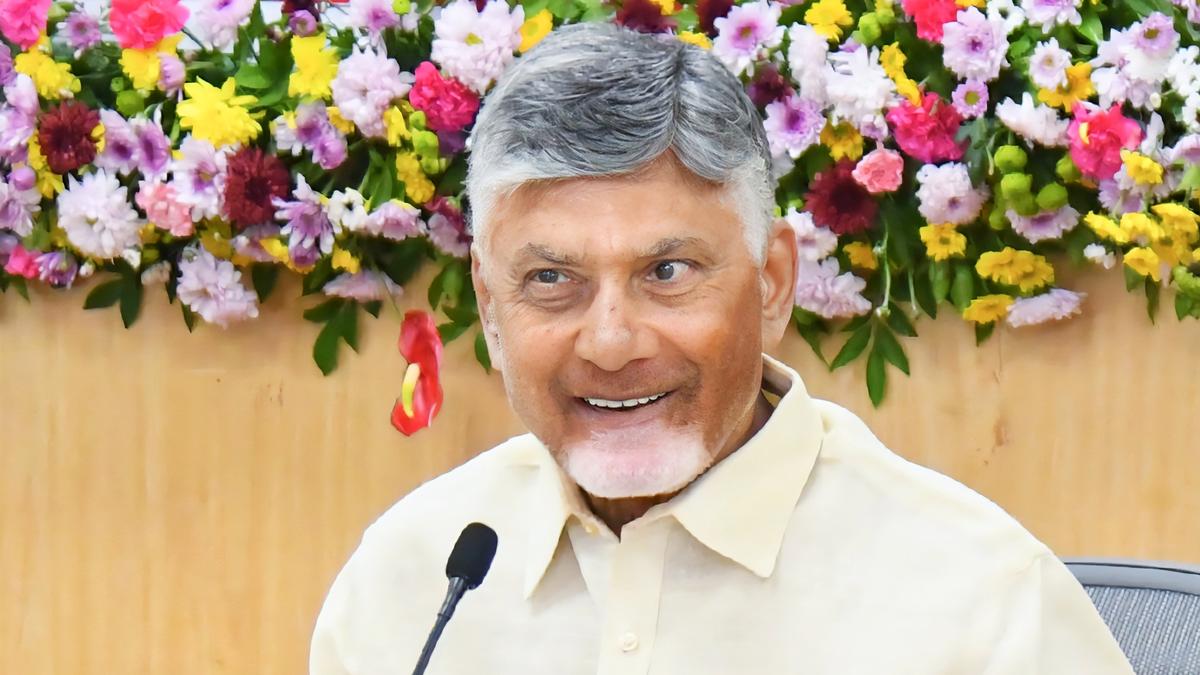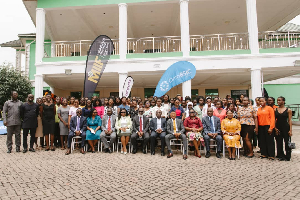By Subba Rao
Copyright thehindu

Chief Minister N. Chandrababu Naidu set an ambitious roadmap for Andhra Pradesh’s governance, revenue administration, and law-and-order mechanisms on Tuesday, the second day of the District Collectors’ Conference.
Stressing accountability, transparency, and the role of technology, Mr. Naidu said every reform must ultimately lead to ‘citizen satisfaction’.
Pointing out that nearly 60% of the total public complaints stemmed from revenue services, the Chief Minister blamed the previous YSRCP government’s Land Titling Act for creating disputes.
“The new legislation has been designed to protect citizens’ assets. The government will complete land re-surveys, rectify records, and ensure geo-tagging and QR-coded ownership documents by 2027. More than one crore village-level property documents are planned under the Swarnapanchayat Portal,” Mr. Naidu said.
He asked the officials to ensure CCTV surveillance on the red sanders depots in Tirupati, establish an experience centre to showcase value-added products, and maximise the rare species’ global potential.
Referring to urban governance, he asked the municipal authorities to use satellite imagery to detect illegal structures, expedite BPS-LRS schemes, and mandate drainage space in new layouts.
GST reforms & benefits
Highlighting the new GST 2.0 regime, Mr. Naidu said that the people of Andhra Pradesh will be benefitted by nearly ₹8,000 crore per annum.
From September 22 to October 22, a State-wide awareness drive will be launched to make people aware of the reduced taxes, including zero GST on life and health insurance schemes. The Ministers, Collectors, and elected representatives will spearhead the campaign. “As we promoted the YogaAndhra programme, we must publicise GST benefits so that people know what they gain,” he said.
Mr. Naidu unveiled plans to rate government services to enhance accountability. He insisted that senior officials should stop burdening the Collectors by seeking repeated reports. They should draw real-time field-level data from RTGS systems instead.
“All government files must be uploaded online within two months, with forensic auditing tools to prevent manipulation. By November, Data Lake and RTGS district centres will be operational,” Mr. Naidu said.
To strengthen digital governance, five young IAS officers have been tasked with innovation projects. “Many young officers think innovatively. We will tap their potential to create a technology ecosystem,” Mr. Naidu said and unveiled designs for the upcoming Quantum Valley buildings, which will host next-generation 3,000-qubit quantum computers and provide workspace for 80,000 professionals.
Cybercrimes
Referring to law and order, Mr, Naidu said overall crime rates in the State have decreased by 4%, while cybercrime has surged by 16%. He asked the police to adopt intelligence-led policing, enhance forensic capacity, and expand CCTV coverage. Cybercrime currently causes monthly losses of around ₹30 crore, he noted, urging stronger preventive action.
On narcotics, Mr. Naidu called for a sustained crackdown on ganja trade and consumption, stressing that drug control “cannot be an overnight exercise but must remain a priority.”
He asked the police to reduce overall crime by 30% and serious crime by 50%. Quick response systems, trained dog squads, and “visible policing supported by invisible technology policing” were emphasised, citing Singapore as a model. Sensitive cases should be expedited, with the Sugali Preeti case already referred to the CBI.
Mr. Naidu underlined the need for transparency across excise operations, insisting on 100% online payments. He called for global-standard de-addiction and rehabilitation centres. On mining, he urged districts to improve revenues and focus on value addition.
Mr. Naidu said Andhra Pradesh is foregoing ₹1,000 crore to provide free sand and charging only transport costs. “Public satisfaction matters. People should not be obstructed when they come forward to transport sand,” he said.
The Chief Minister emphasised that the success of reforms in revenue, taxation, law enforcement, and technology will be measured only by public satisfaction. “Every reform we undertake must lead to greater trust, transparency, and benefits for the people,” he added.



